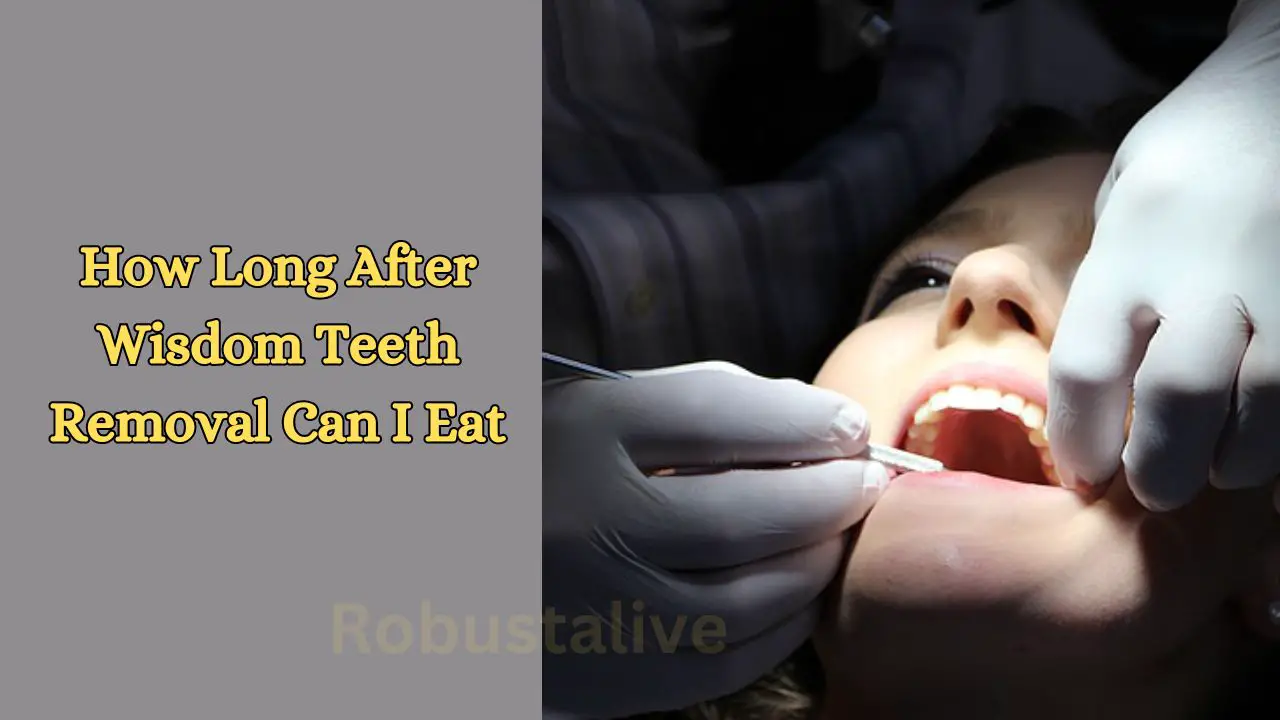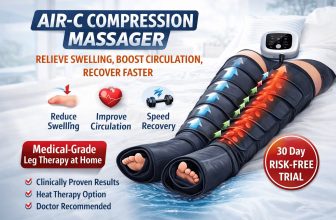How Long After Wisdom Teeth Removal Can I Eat?

Wisdom teeth, also known as third molars, usually emerge in late adolescence or early adulthood. For many individuals, these teeth can cause various dental problems, leading to their removal. Wisdom tooth extraction is a common dental procedure.
But many ask how long after wisdom teeth removal can I eat?
You can typically eat one to two hours after wisdom teeth removal once the anesthesia wears off. For 24 hours, stick to a soft/liquid diet. Days 3-7, introduce soft foods. On days 7-14, be cautious with your diet. After two weeks, return to a regular diet, avoiding specific foods and habits for proper healing.
This article will provide you with a comprehensive understanding of the healing process and dietary recommendations after wisdom teeth removal.
How Long After Wisdom Teeth Removal Can I Eat?
Immediately after wisdom teeth removal, you’ll still be under anesthesia or sedation. You must avoid eating or drinking for a specified period set by your oral surgeon or dentist during this time.
Typically, this fasting period ranges from one to two hours to ensure your mouth remains undisturbed while the anesthesia wears off.
The First 48 Hours
In the initial 24 hours following the procedure, your mouth will likely be numb, and you may experience some bleeding. Sticking to a soft or liquid diet during this time is essential to minimize any potential complications.
In the first two days following the surgery, consume soft foods. These include Jell-O, ice cream, milk, pudding, soup, juice, smoothies, applesauce, and cottage cheese.
These choices require minimal chewing and provide the necessary nutrients to support the healing process.
Avoid hot foods and drinks during this initial period, as they may irritate the surgical site. It’s also essential to avoid using a straw for at least 24 hours, as the sucking motion can dislodge the blood clot needed for healing.

Days 3-7
As you progress through the recovery, you can introduce soft, nutrient-rich foods requiring minimal chewing.
Consider eating mashed potatoes, scrambled eggs, milkshakes, oatmeal, and pureed fruits and vegetables.
Be cautious with your choices, ensuring they don’t include spicy, overly sweet, or hard-to-chew items.
Days 7-14
Depending on how your mouth is healing, you may be able to add more foods to your diet during this period.
However, maintain caution and avoid spicy or hard-to-eat foods until your dentist or oral surgeon gives the green light.
Day 15 And Beyond
After approximately two weeks, you should be able to return to your regular diet. At this stage, you can gradually reintroduce solid foods as long as they don’t cause discomfort or pain while chewing.
Foods To Avoid
During your wisdom teeth removal recovery, it’s best to avoid certain foods and habits to promote healing:
- Skip acidic and spicy foods to prevent irritation.
- Avoid alcoholic beverages, which can interact with medications.
- Stay away from rice, quinoa, and anything with small seeds that can get stuck.
- Don’t eat hard or tough-to-chew foods to prevent stitches from reopening. These include Nuts, chips, jerky, and similar items.
- Absolutely avoid tobacco products for 72 hours post-surgery to minimize complications.
Recovering From Wisdom Teeth Removal: What to Expect
Day 1: The Immediate Aftermath
The first day following your wisdom teeth removal can be the most challenging. The effects of the anesthesia used during the procedure may still linger, leaving your mouth numb.
Common symptoms during this period include:
- Swelling, Pain, and Bleeding: Your oral surgeon will provide instructions on managing this discomfort.
- Swelling and Mild Cheek Bruising: Applying cold packs can help reduce swelling.
- Trismus (Lockjaw): You may find it difficult to open your mouth wide due to trismus. This is a temporary condition and should improve with time.
- Weird Taste: Some people report a strange taste in their mouth after the procedure. This is usually temporary.
- Numbness: You might experience numbness, tingling, or a lack of sensation in your mouth, cheeks, or face. This is a result of the anesthesia and should wear off gradually.
It’s essential to have someone drive you home after the surgery, as you should not operate a vehicle while under the influence of anesthesia.
Days 2–4: Continued Recovery
Over the next few days, you can expect some changes in your symptoms. The swelling, pain, and bruising may increase initially, but they should gradually improve. During this time:
- Rest: Taking at least 1–2 days off from work or school to rest is recommended. Allow your body to recover.
- Pain Management: Your oral surgeon may prescribe pain medication or recommend over-the-counter options like ibuprofen or acetaminophen. Follow the instructions provided for pain management.
- Bleeding: While bleeding should decrease, you may still experience some oozing at the extraction site. If bleeding significantly increases, contact your oral surgeon or a healthcare professional.
Days 5–14: Nearing Full Recovery
By the end of the first week, most people are nearing the end of their recovery journey. You should experience:
- Minimal Swelling, Bruising, and Pain: Swelling and bruising in your mouth and cheeks should be significantly reduced. Pain should also be minimal.
- Improved Jaw Mobility: You’ll likely regain near-normal jaw mobility, allowing you to open your mouth more comfortably.
- No More Tingling, Bleeding, or Bad Taste: Numbness, tingling, and the strange taste in your mouth should be gone. The bleeding should have stopped.
- Gradual Return to Physical Activity: If your recovery progresses, you can gradually return to physical activities and work.
Possible Complications
While wisdom teeth removal is generally safe, complications can occur. Dry sockets, which typically occur 3–5 days after surgery, can cause severe pain if the blood clot in the extraction site is dislodged. Damage to nerves is also possible but less common.
Seek immediate medical attention if you experience any of these symptoms:
- Trouble swallowing or breathing
- Fever
- Ineffective pain medication
- Worsening swelling, tingling, or numbness
- Uncontrolled bleeding at the extraction site
Self-Care During Recovery
Proper self-care is essential for preventing infections and complications. Follow these guidelines:
- Activity: Avoid strenuous activities and heavy lifting for the first few days. Smoking, using straws, and spitting should also be avoided.
- Oral Hygiene: Your oral surgeon will provide specific instructions, but gentle rinsing with salt water or antiseptic mouthwash, gentle brushing and flossing of other teeth, and dabbing the wound with gauze are typically recommended.
- Pain Management: Take prescribed or over-the-counter pain medication as directed. Applying ice to the affected area can help reduce swelling.
FAQs
How Long After Wisdom Teeth Removal Can I Eat Rice?
You can typically start eating rice around one week after wisdom teeth removal, but ensure it’s soft and well-cooked, and chew it carefully to avoid any discomfort or complications. Always follow your dentist’s advice for a safe recovery.
How Soon After Wisdom Teeth Removal Can I Drink Water?
You can drink water after one to two hours of wisdom teeth removal, typically once the anesthesia wears off. But avoid using a straw for at least a week to protect the healing process.
When Can I Brush My Teeth After Wisdom Teeth Removal?
You can usually start brushing your teeth again the day after wisdom teeth removal. However, it’s crucial to be gentle and avoid the extraction site to prevent irritation or disruption to the healing process. Always follow your dentist or oral surgeon’s specific post-operative care instructions for the best results.
Conclusion
In summary, the timeline for when you can eat after wisdom teeth removal depends on the stage of your recovery. Initially, focus on soft and liquid foods, gradually progressing to a regular diet as you heal.
It’s crucial to follow your dentist’s or oral surgeon’s instructions closely and listen to your body to ensure a smooth and comfortable recovery process.





